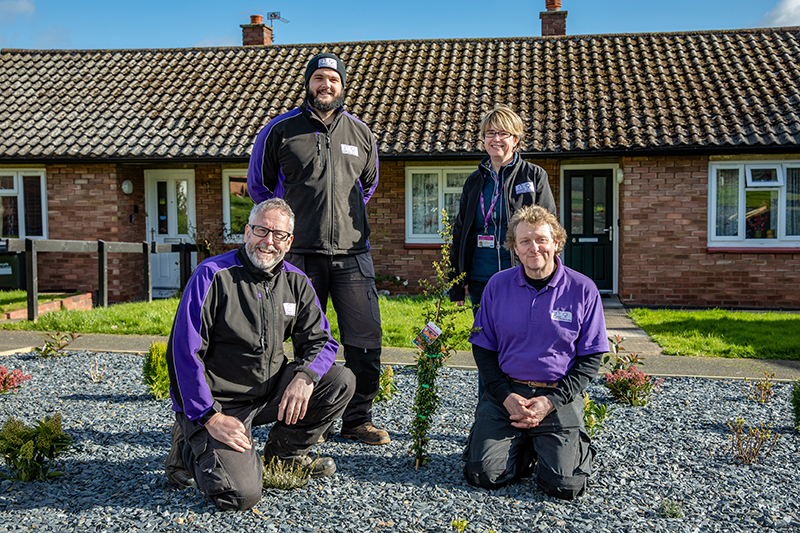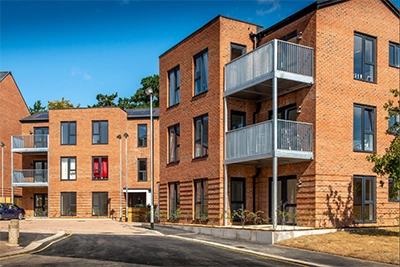This Update includes the following

RSH Updated Consumer Regulation Implementation Plan
Last month the Regulator of Social Housing (RSH) published an updated implementation plan ‘Reshaping Consumer Regulation’ setting out a draft timetable and other guidance to help landlords prepare for the full introduction of new regulatory arrangements in April 2024.
Timetable
The Social Housing Regulation Bill is expected to receive Royal Assent before Easter. The Government will then launch a consultation on changes to its Directions to the Regulator, laying the groundwork for further consultations by the Regulator on the new regulatory standards.
Consultations
Over the summer the Regulator will be consulting on the detail of the new regulatory arrangements including:
- The standards that will underpin proactive consumer regulation.
- A Code of Practice on consumer issues setting out what is expected under the new standards.
- Updated guidance setting out how the regulator will use enhanced enforcement powers included in the legislation.
Pilot Programme
The regulator has already announced a pilot programme of In-Depth Assessments (IDAs) to trial new tools and methods specific to consumer regulation. The pilot programme will take place during 2023 and includes two local authority landlords, one of which has an ALMO (Eastbourne Borough Council).
Tenant Satisfaction Measures
Landlords will start collecting TSM data from 1 April 2023 with initial data returns due from April 2024.
New Consumer Standards
The broad themes of the new standards are as previously outlined in Reshaping consumer regulation: our principles and approach (RSH Nov 2021) namely safety, quality, neighbourhood, transparency, engagement and accountability, and tenancy. In addition, the current Social Housing Regulation Bill includes an additional power for the regulator to set standards for professional competency and conduct in the sector.
Diversity, Fairness and Respect
The RSH implementation plan highlights a new focus on tenants engagement – ‘This includes an increased emphasis on engaging with tenants and listening to and hearing their views about their landlord to inform our regulatory response.’ The new standards regime will look for assurance that landlords are addressing the diverse needs of tenants and ensuring tenants are treated with fairness and respect.
The Regulator has set out four key questions for landlords:
- Do landlords know what outcomes are achieved across the diverse spectrum of their tenants?
- What data do landlords have access to?
- Does everyone get fair access to and receive good services?
- How do landlords know?
In order to evaluate landlords’ performance, the regulator will be looking at new sources of evidence and assurance, particularly feedback from tenants. There is an onus on landlords to ensure they have appropriate arrangements to allow tenant feedback and scrutiny of services and a route to directly influence decision making, holding boards and councillors to account.
Damp and Mould Update
The Regulator of Social Housing (RSH), Department of Levelling Up Housing and Communities (DLUHC), and Housing Ombudsman (HO) have all recently published updates on policy approaches and expectations relating to damp and mould issues in social housing.
Regulator of Social Housing – initial findings from damp and mould survey
At the end of last year, the RSH asked all larger providers of social housing to submit evidence of the extent of damp and mould in their tenants homes as well as information on their approach to tackling this.
Differences in the way registered providers collect and record information on this issue mean it is difficult to make an accurate assessment of the extent of damp and mould issues in the sector overall. However, the initial findings indicate that most providers:
- Take damp and mould seriously.
- Identify and address damp and mould in tenants’ homes.
- Have made improvements in how they handle damp and mould cases over the last year.
A minority of registered providers supplied poor quality information which:
- Relied on reactive approaches to identifying problems rather than proactively looking for evidence of damp and mould e.g. through property surveys,
- Had less detailed or older data,
- Had weaker evidence on assurance, oversight and understanding the condition of homes.
Going forward, the RSH expects all registered providers to make improvements to how they protect tenants from the potential harm that damp and mould can cause. The regulator will also be engaging directly with individual providers where the data supplied was poor or which reported a high prevalence of damp and mould problems.
Read the RSH Report ‘Damp and Mould in Social Housing: initial findings
DLUHC update on government’s work to improve the quality of social housing
DLUHC has published the first of a series of updates setting out current work to improve the quality of social housing. This features several policy initiatives relating to tackling damp and mould:
This highlights the following progress to date:
- A joint Department of Health and Social Care (DHSC) and DLUHC review of existing guidance on the health impacts of damp and mould in homes. New consolidated guidance on this will be published by the summer 2023.
- DLUHC is considering introducing tougher measures on hazards including damp and mould in homes.
- Parallel action in the private rented sector is proposed via the forthcoming Renter Reform Bill which will include a package of reforms including a Private Rented Sector Ombudsman.
- The Social Housing Regulation Bill will bring introduce new consumer protections alongside a renewed focus on resident engagement and complaints handling as well tougher sanctions for landlords.
- The Social Housing Regulation Bill will also make energy efficiency a main objective of the Regulator of Social Housing (RSH) and linked to this is a planned consultation on improving the energy efficiency of social housing.
Read the January 2023 – update on government’s work to improve the quality of social housing
Housing Ombudsman revisits damp and mould report
The Housing Ombudsman has published an update on the October 2021 Spotlight Report ‘Damp and mould – It’s not lifestyle’. The new report – which considers performance one – year on from the report – highlights that whilst there has been some progress, there is worrying evidence of complacency amongst some in the sector. In the meantime, the volume of complaints and findings of maladministration continue to rise.
The new report highlights 10 recommendations for governing bodies that will support progress and successful scrutiny.
- Find your silence – identify who is not using the complaints process, and why.
- Proactive communication strategy – the tone of advice to residents is key. Communicate evidence of good practice effectively to residents.
- Treat residents fairly – each case needs to be treated individually, avoid making assumptions. Behind each report of damp and mould, there is a person or people who may be suffering and that should be the focus.
- Improve record keeping – good record-keeping is an integral part of service provision, not an optional extra.
- Know your residents – issues include overcrowding and the availability and use of heating and ventilation systems. Also, individual circumstances such as disability, financial hardship, and health conditions.
- Check net zero plans – landlords need to consider whether a green drive will push people into fuel poverty, particularly as electrical heating costs more than gas.
- Know your stock – Identify which properties are at risk of damp and mould or already have this problem. Ensure essential works are completed before reletting / mutual exchanges.
- Have a dedicated damp and mould strategy – This should be wider than individual cases, proactively identifying themes and trends. It should also ensure alignment with other policies such as mutual exchange and the void standard.
- Empower Staff – landlords should consider the Chartered Institute of Housing’s Professional Standards if they have not already done so. Encourage practical solutions and proactive approach to identifying and solving problems.
- Use the complaints system to learn – analyse the complaints received and use insights to make improvements. Continue to use the complaints process, even where legal action has been suggested, as there still may be an opportunity to resolve the matter.
Excellence in Management and Partnership – Updated report / residents’ briefing available
The CWAG/ NFA report ‘Excellence in management and partnership’ has been updated to reflect recent changes to legislation and the introduction of TSMs. The NFA has also recently produced a residents briefing / toolkit as part of the overall package
For further information and to download the updated versions of the report – link

Diary Dates
LGA Webinar – Handling Complaints and Improving Tenant Experience – Friday 3rd March 2023 10.30 – 12.00
The LGA is holding a webinar focussing on complaints handling in social housing. The webinar is being held over Zoom and is free to LGA members. The programme includes the following:
- Richard Blakeway, Housing Ombudsman will discuss complaints with a particular focus on damp and mould.
- DLUHC will share information on their updated social housing complaints campaign.
- The Chartered Institute of Housing will speak about their Better Housing Review.
To find out more information and to book follow the link: Local Government Association
LGA Webinar – Building Safety (Session 3) – Thursday 9th March 2023 (2.00p.m – 4.00p.m)
This free LGA webinar funded by government will provide updates on councils responsibilities as landlords and ALMOs in respect of the new building safety regime, Fire Safety Act and associated regulations. Representatives from the Health and Safety Executive, Home Office and the National Fire Chiefs Council will provide updates and answer questions.
The webinar is being held over Zoom and is open to council officers and ALMOs. To book use link: Local Government Association
